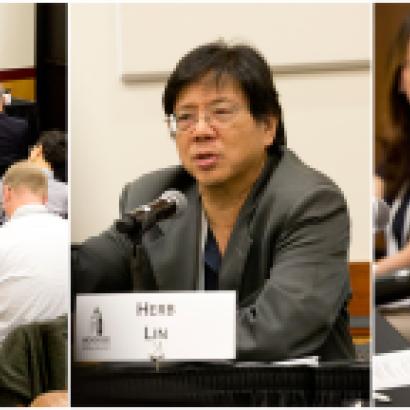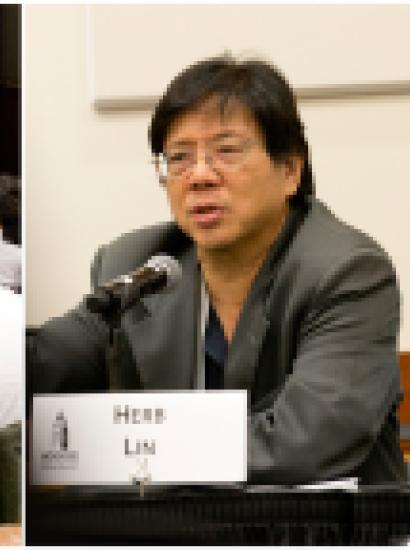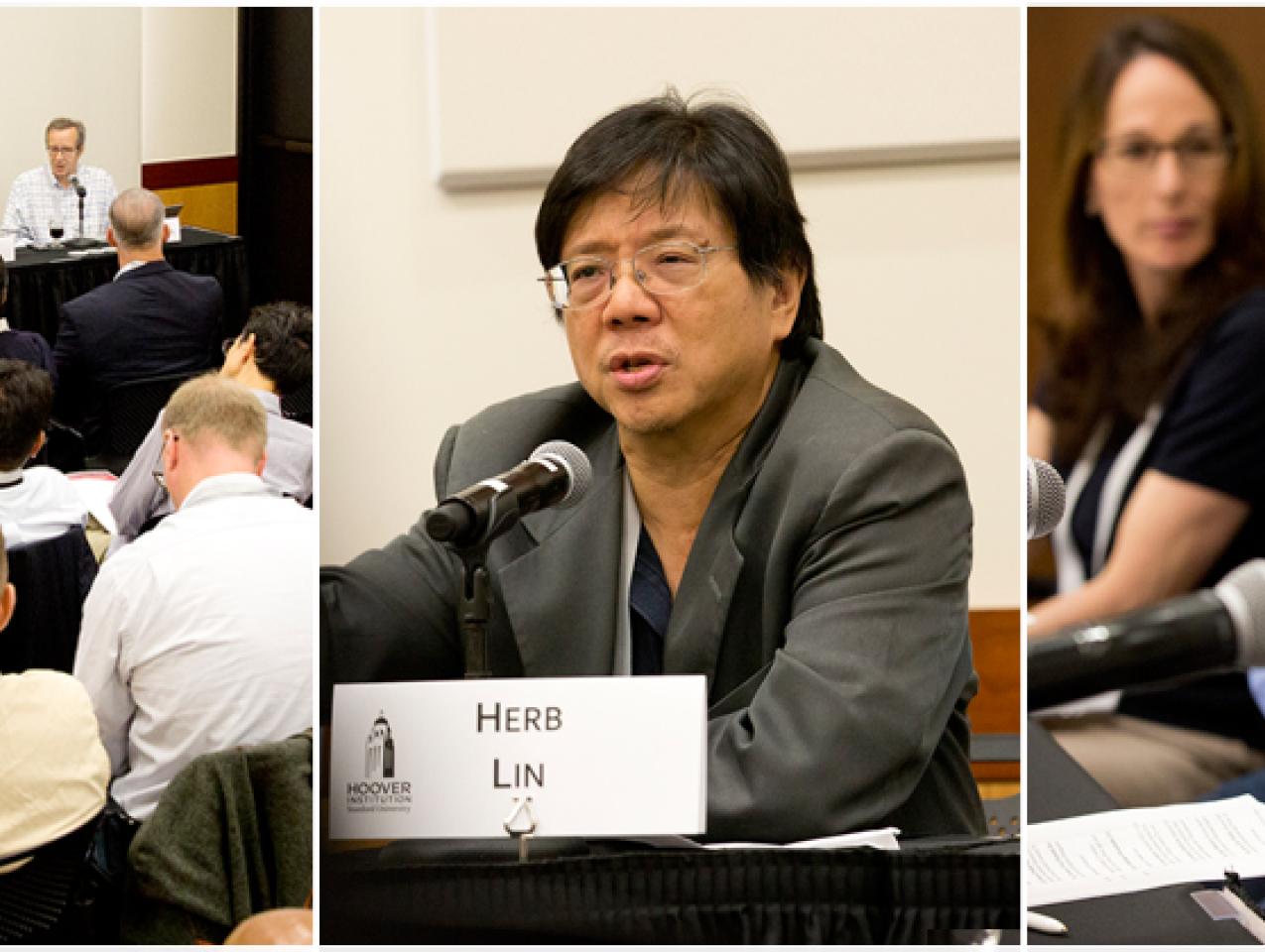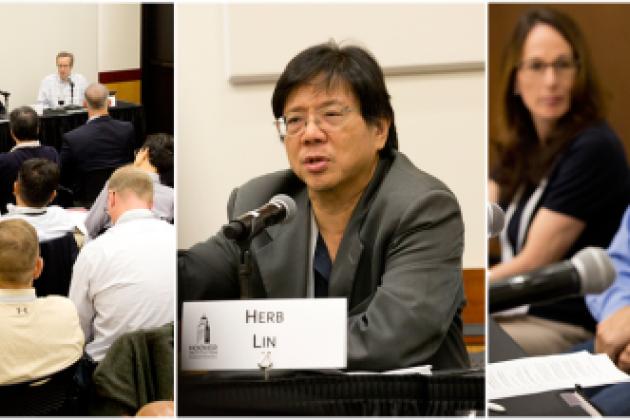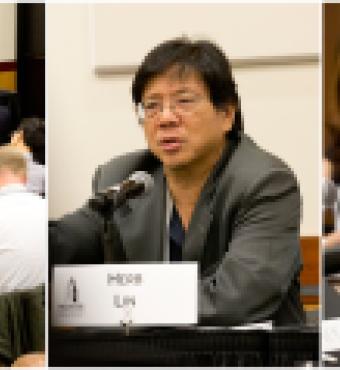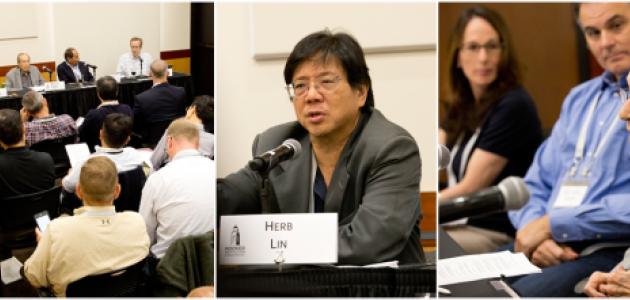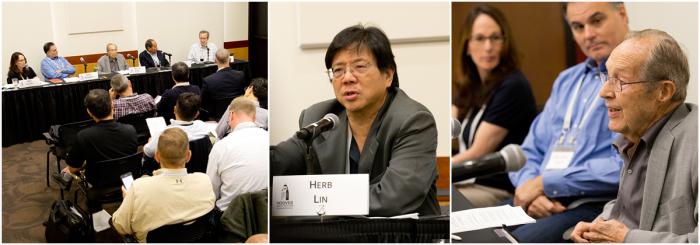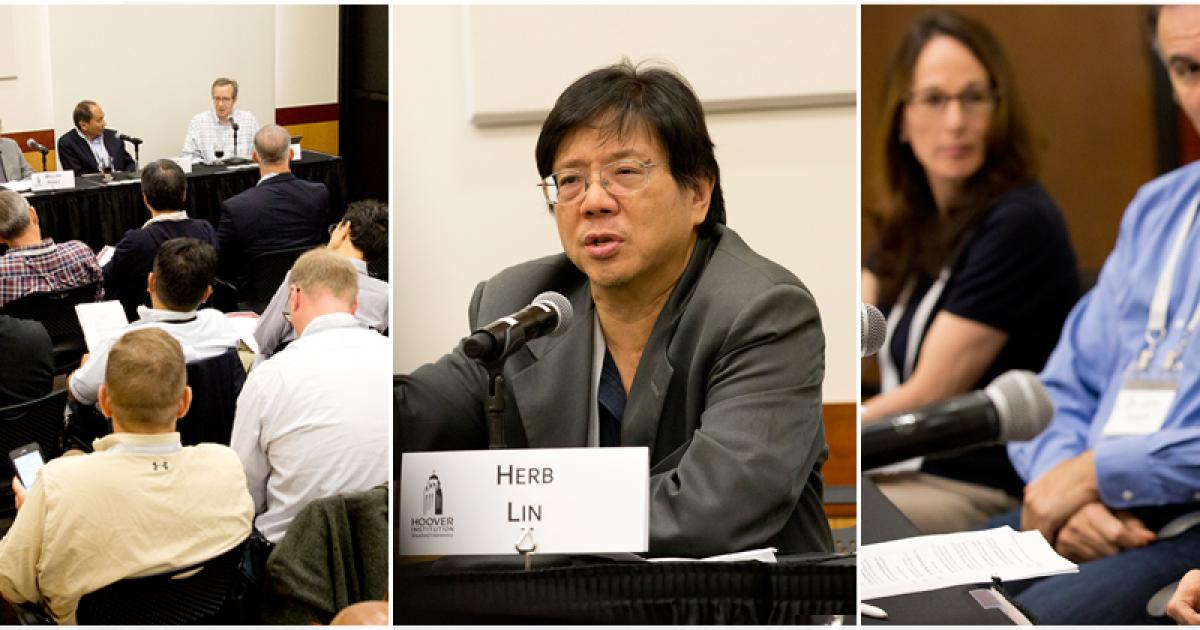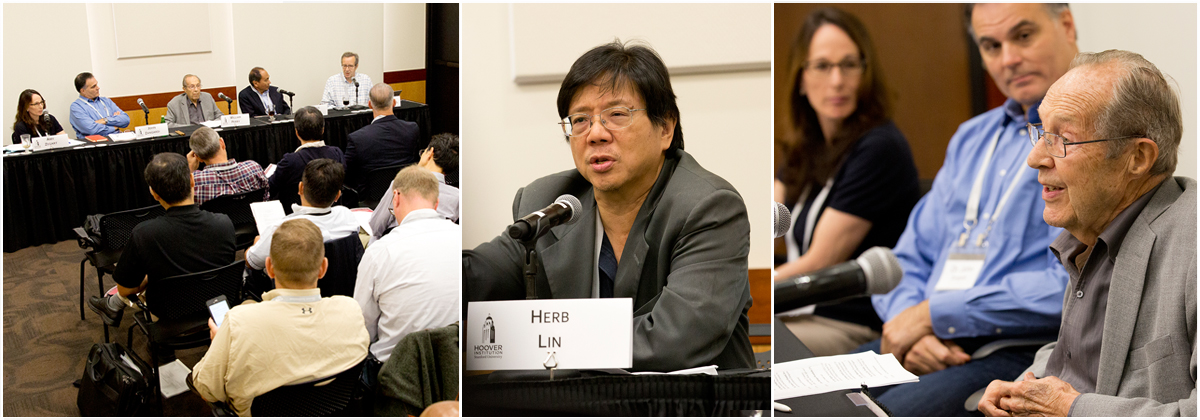
The Hoover Institution recently hosted John Zangardi, acting chief information officer for the US Department of Defense, along with a group of senior information and cyber specialists from the international defense community, to discuss evolving security challenges.
A retired naval flight officer, Zangardi held several high-level strategic positions in the navy before becoming principal deputy chief information officer for the Department of Defense. Now serving as the DOD’s acting chief information officer, he is the primary adviser to Secretary of Defense Mattis on information management and technology and other high-tech program areas.
Zangardi was accompanied by a group of defense officials from the United States, Australia, Canada, New Zealand, and Britain—the “Five Eyes” countries—as well as Germany, Japan, and NATO. Agencies represented included the National Security Agency, Cyber Command, and Joint Chiefs of Staff, as well as their international counterparts. Their visit to Hoover was the final leg of a weeklong trip to Silicon Valley to discuss information technology developments expected in the next five to ten years.
Organized by Davies Family Senior Fellow Amy Zegart, the meeting featured two sessions, beginning with a high-level overview of the international threat landscape. That panel featured Freeman Spogli Institute senior fellow Francis Fukuyama, who surveyed macro-level trends affecting global democratic norms, international alliances, and political ideology. Hoover Institution distinguished visiting fellow Toomas Hendrik Ilves focused on emerging digital threats to democratic processes, ranging from manipulating voters through information warfare to direct interference in elections. Nineteenth secretary of defense and Hoover Institution senior fellow Bill Perry discussed the persistent, existential threat of nuclear war, heightened by US-Russian tensions, new nuclear threats at the state and transnational levels, and insufficient safeguards against a nuclear blunder.
A second panel on cyber security issues featured Zegart along with Herb Lin, the Hank J. Holland Fellow in Cyber Policy and Security at Hoover, and Visiting Fellows John Villasenor and Jay Healey. Lin explained how to strengthen cyber defense capabilities through better training, staffing, and accountability. Villasenor discussed cyber security vulnerabilities arising from military supply chain weaknesses, the internet of things, and the margin for human error. Healey commented on the failure of the defense community to get ahead of the increasingly complex network of digital threats. The panelists also drew on their recent experiences as faculty in the cyber security–themed spring 2017 class of the Stuart Family Congressional Fellowship Program to discuss cyber threat awareness on Capitol Hill.
Each session featured extensive question and answer periods among participants, with guests looking to panelists for information about threats posed by North Korea and Iran, how to strengthen cyber defenses, as well as the new challenges posed by automation, artificial intelligence, cloud storage, and other emerging high-tech areas.







